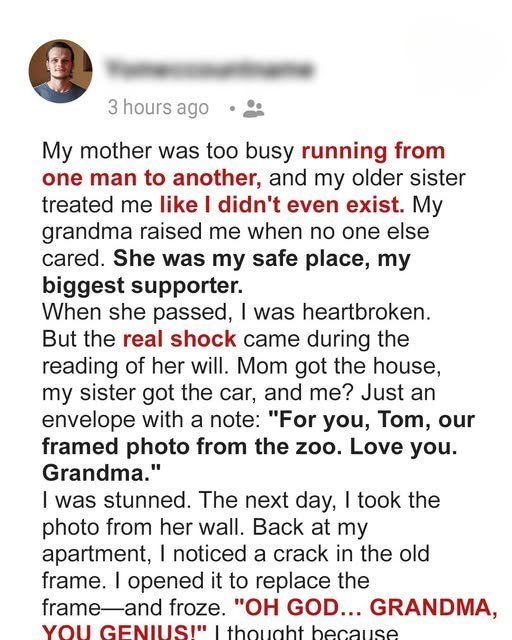I discovered a hidden camera in our Airbnb bedroom. It was tucked behind a decorative plant with a tiny blinking light — something only noticeable if you looked closely. My heart dropped.
We had booked this place to celebrate a peaceful anniversary weekend, not to feel watched.
It was midnight, and my husband calmly placed a towel over it while I tried to steady my breathing.
We agreed to rest and handle everything in the morning.
At 2 a.m., the door suddenly burst open. The Airbnb owner stormed in without knocking, his voice raised and upset.
“You can’t cover that — it’s part of the house system!” he exclaimed.
We immediately stood up, confused and shaken. My husband stayed calm, telling him firmly that entering without permission was unacceptable and that any camera inside a private sleeping space was inappropriate.
The tension in the room felt heavy, and all I could think of was getting somewhere safe.
After the owner left, we quietly packed our bags and drove to a nearby hotel, where we contacted Airbnb customer support.
We shared photos, time-stamped videos, and details of the unexpected intrusion. The representative apologized sincerely and assured us that the situation would be investigated.
Knowing we had done the right thing gave us a little comfort, though sleep was impossible that night. Safety always comes first — and we needed space to breathe.
A few days later, Airbnb confirmed the listing violated privacy rules, and it was removed.
The host was held accountable, and we received a full refund along with support from their team.
Looking back, I’m grateful we trusted our instincts and handled the situation calmly. Sometimes the most important thing you can do is protect your peace — and never ignore signs that something doesn’t feel right.
Privacy, respect, and safety are not luxuries; they are basic expectations every traveler deserves.
2nd story: The Inheritance Hidden in a Picture Frame: How Grandma’s Final Gift Built a Home for Everyone

When the lawyer handed me the package, I thought it was a joke. My mother had just signed for the house she’d always wanted, my sister had taken Grandma’s car before the funeral flowers had even wilted — and me? I got a single, wrapped picture frame.
Inside was an old photo of Grandma and me at the zoo: her in her favorite green cardigan, holding my hand as a giraffe leaned down like it was bowing to her.
I smiled, because what else could I do?
But the smile cracked before I made it to my car.
No jewelry. No land.
No keepsake of value.
Just a photo and a sting that said, you were never her favorite. At home, I dropped the frame on my table, too angry to hang it, too sentimental to throw it away.
A hairline crack in the glass caught my attention, and as I pried up the backing to fix it, an envelope slipped out.
It was sealed with the faded floral tape Grandma used on Christmas presents.
Inside were stock certificates, bank statements, and a small brass key taped to an index card that read: “For when you’re ready.” That night I barely slept. The next morning, I walked into a bank, heart pounding, and opened the safe-deposit box the key fit.
Inside were deeds, dividends, and the kind of steady, thoughtful wealth that comes from a lifetime of discipline. At the bottom was the deed to the land under Grandma’s old house — the one my mother thought she owned.
In a single, quiet move, Grandma had changed my life.
I bought the house back and named it Grace’s Corner.
I stripped it to its bones, repainted, and turned it into a place she’d be proud of: a free lending library in the front parlor, a soup-and-bread kitchen in the dining room. The smell of garlic, rosemary, and old paper filled the air.
People came — first the children, then their parents, then neighbors who had nowhere else to go.
You didn’t need to explain yourself at Grace’s Corner. You just came hungry and left lighter.
I kept setting two mugs on the counter every night — one for me, one for her.
It felt like she was still there, humming under her breath as the radiator clicked to life.
Months later, my sister showed up, mascara running, shoulders drawn tight.
She didn’t ask for money. She just whispered, “Can I sit?” I handed her coffee and let her cry. When she finished, I pushed an apron toward her.
“No cash,” I said.
“But you can work here.
Be someone Grandma would point to and smile.” She did.
Every morning after that, she showed up to wash dishes, ladle soup, and listen. One day she looked up and said, “I forgot what it felt like to belong.” That’s when I understood what Grandma’s photo really meant — it wasn’t a keepsake, it was a map.
She hadn’t left me money to spend; she’d left me a mission to share.
And every bowl of soup, every book passed across the counter, every person who finds warmth inside these walls — that’s her legacy. She didn’t leave me wealth.
She left me enough — enough love to build something that lasts.